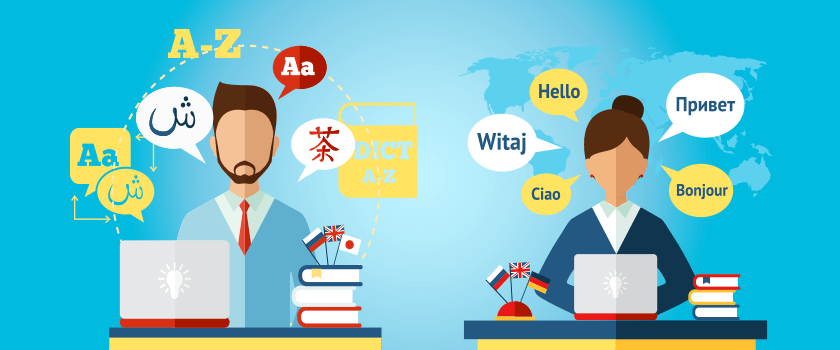As Germany companies look to expand to new frontiers, the Gulf Cooperation Council (GCC) region, which comprises the UAE, Saudi Arabia, Qatar, Bahrain, Oman and Kuwait has become a strategic destination. The Gulf region with its fast diversifying economies, investment friendly policies, and growing demand of high quality goods and services offers European brands humongous opportunities. Nevertheless, to make a successful entry into the market, it is not enough to translate brochures, websites, or advertisements from German to English or Arabic. It needs careful, culturally aware localization which extends beyond words to enhance the message, tone, visuals and brand voice to the local socio-cultural environment.
Localization involves the act of adjusting the content in a way that appeals to the culture, language, values and expectations of the target audience. Direct translation of German marketing materials without localization might result in the loss of attention, or even offense, of the local consumers. The Gulf market is strongly based on the Islamic traditions yet is also very modern and tech-savvy, which means that the messaging intended to resonate with it should be able to find the balance between the global and the local.
The trick to successful marketing is Cultural Alignment
Marketing in Germany can be constructed on the basis of clarity, logic and straight forwardness. Advertisements can lay stress on productivity, novelty, and clear-cut product advantages. This style indicates the German culture values of precision, functionality and rational decision making. Conversely, relying on the expectations of the market in the gulf region, marketing can be more emotional, idealistic and relational. The messages are expected to appeal to trust, family values, luxury, and prestige. Thus, a word-for-word translation of German material may drain it off the intended effect, or even produce a cultural clash.
Take a German car manufacturer, whose slogan was “performance fed on discipline and control,” as an example. Whereas the German and other Western customers respond well to such messaging, the Gulf customers might relate better to messages based on the prestige, driving pleasure, or status.
As Germany companies look to expand to new frontiers, the Gulf Cooperation Council (GCC) region, which comprises the UAE, Saudi Arabia, Qatar, Bahrain, Oman and Kuwait has become a strategic destination. The Gulf region with its fast diversifying economies, investment friendly policies, and growing demand of high quality goods and services offers European brands humongous opportunities. Nevertheless, to make a successful entry into the market, it is not enough to translate brochures, websites, or advertisements from German to English or Arabic. What it needs is careful, culture-aware localisation that transcends language to tailor the message, tone, visuals and brand voice to reflect the specifics of the socio-cultural context of the region.
Localization involves the act of adjusting the content in a way that appeals to the culture, language, values and expectations of the target audience. Direct translation of German marketing materials without localization might result in the loss of attention, or even offense, of the local consumers. The Gulf market is strongly based on the Islamic traditions yet is also very modern and tech-savvy, which means that the messaging intended to resonate with it should be able to find the balance between the global and the local.
The tone is especially relevant to the formation of customer perception. Whereas German communication can attach importance to professionalism, objectivity and subtlety, Gulf consumer might be more receptive to a warm welcome, hospitality and inspirational story-telling. The German product description may be all about features and specifications; the Gulf-localized one can incorporate the same information into a story about lifestyle improvement or self-achievement.
Local laws and Advertisement Norms
Adherence to the Gulf advertisement rules is quite another significant determinant in localizing German marketing material. Every GCC state possesses its regulatory authority and a set of particular rules regarding what should or should not be present in the commercial content. As an example, religious imagery, political expression and specific kinds of visual material can be prohibited. Pharmaceutical, cosmetic or food product marketing might have to be pre-approved or phrased in a certain way according to the recommendations of the health authorities.
The German companies will have to collaborate with local lawyers, compliance departments or localization agencies which are aware of such regulations. The consequence of the non-observance may lead to fines, prohibition of the campaign or discredit. You also need to be aware of Islamic holidays such as Ramadan or Hajj season, which impact consumer behaviour and the tone of marketing. Creating relevant messaging and content building around those events can create brand goodwill and further resonance in the market.
Visual and Digital Localization
The design, including color scheme, typography and layout, would also have to be gulf-audience adapted. Minimalistic and cool-toned design might be appreciated in Germany, but in the Gulf, it is better to use more luxurious or vivid designs. Also, the Arabic language is written right-to-left, and it impacts the composition and the flow of any visual information. Localizing websites, mobile applications, or brochures in Germany requires the companies to redesign them, not just change the language.
The Strategic Localization Investment
Localization is not a nice-to-have or a line entry on the international expansion budget. To the German businesses it is a strategic investment, which has a direct impact on the success of market entry, customer perception and long term growth in the Gulf region. It is essential to cooperate with localization specialists, who are familiar with German and Gulf cultures, languages, and business specifics.
This can involve the engagement of bilingual copywriters, cultural advisors, Arabic designers and compliance experts to make sure that all aspects of the campaign copy, tone, artwork and format are to the satisfaction of the Gulf market and does not compromise the integrity of the German brand. A well-localized marketing campaign is the one that has the feel of being locally-developed rather than a foreign campaign that has been translated locally.
To sum up, the process of localising German marketing materials in the Gulf market is not limited to translating words in one language to another. It demands profound culture knowledge, language skills and an understanding of local standards, values and consumer patterns. Done well, localization opens bridges, creates trust and allows German businesses to flourish in one of the most dynamic and culturally diverse regions of the world.


